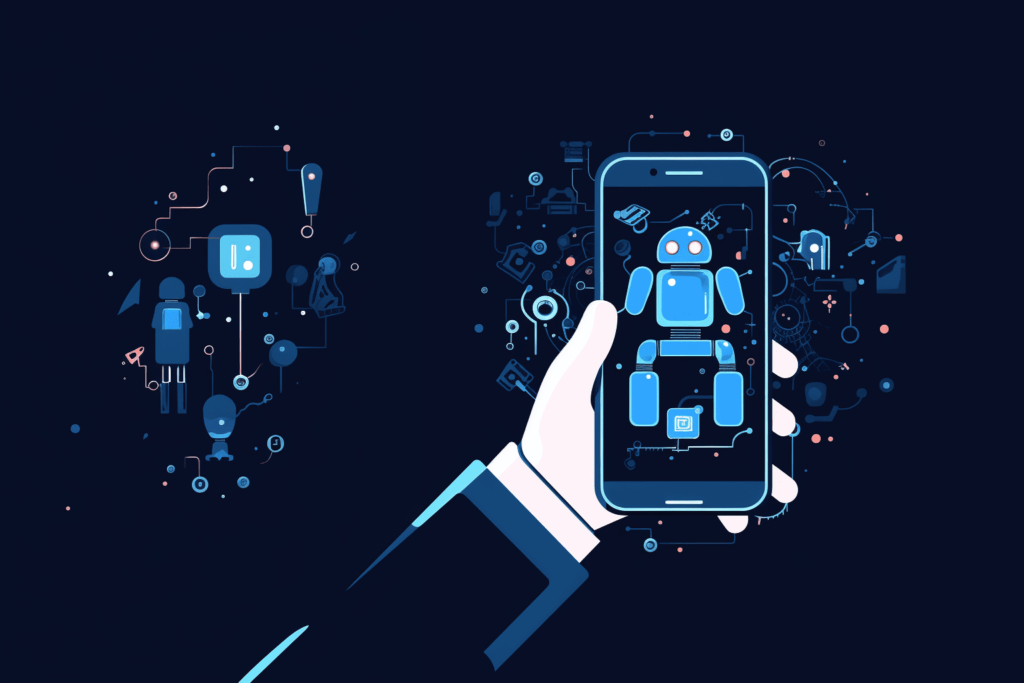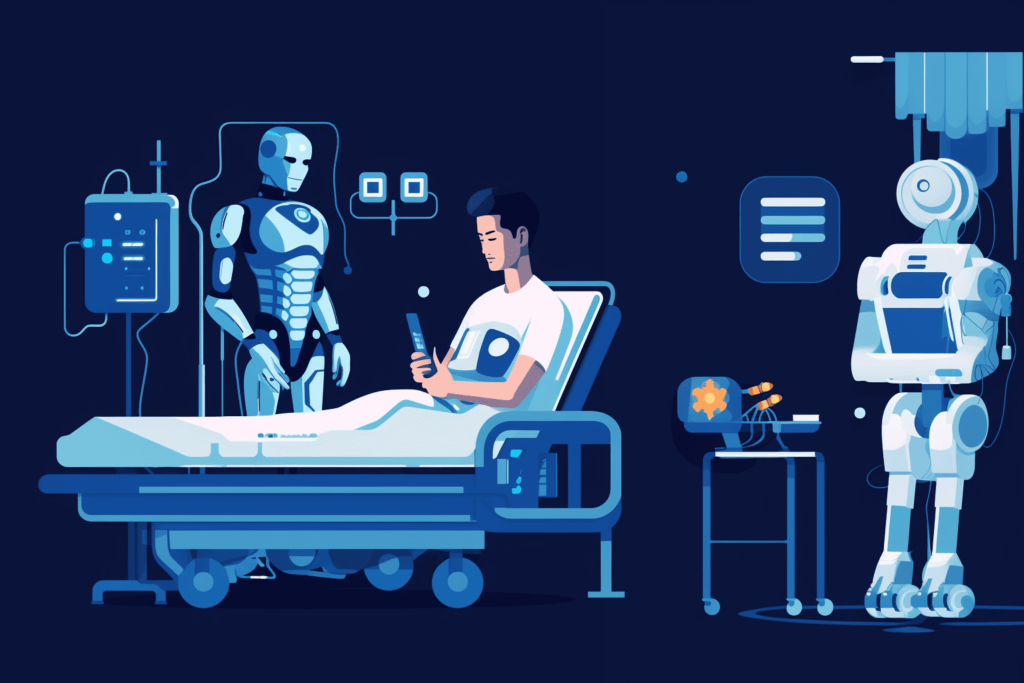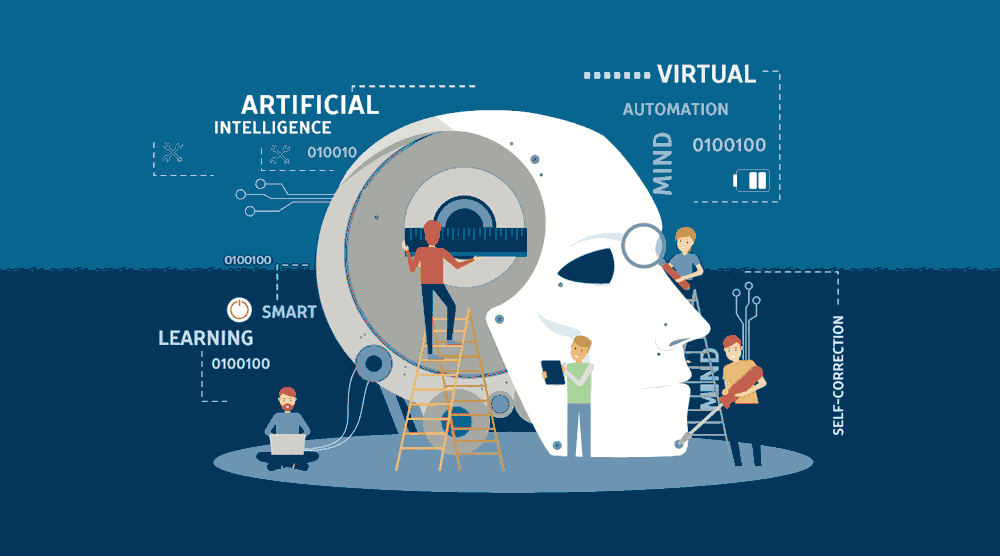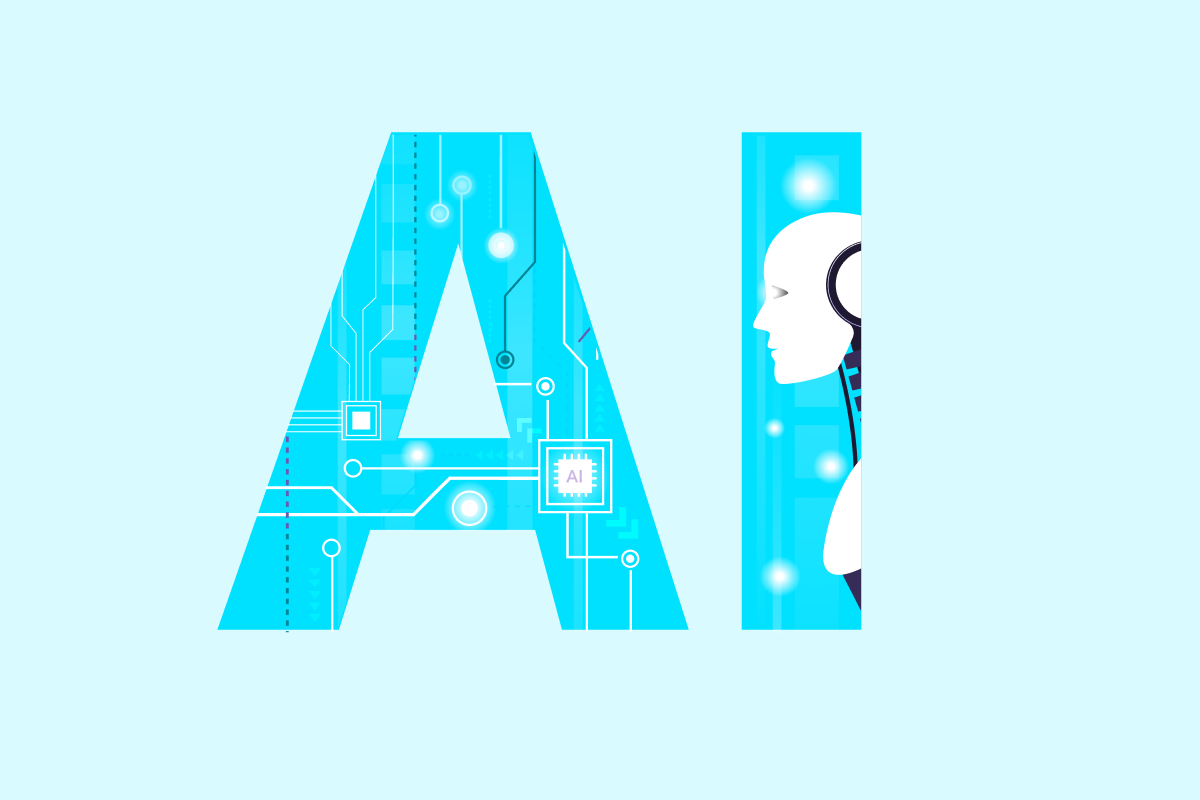AI is omnipresent today. It’s in your pocket, in your car, and in your shopping cart. It is recommending the next series on Netflix that you can binge, helping doctors make diagnoses faster, writing poetry, etc. But here’s the surprise: AI is still in its early years. According to some expert surveys, by 2030, the global AI market will shoot up to a marvelous amount of around $1.8 trillion. More than double the scope it holds today.
Consider this: every time you say, “Hey Siri,” you use an all technology that didn’t even exist when your grandparent was just a child. The victory of DeepMind’s AlphaGo over the world’s champion in the game Go—an old board game that has an incredible number of potential moves even by comparison with the number of atoms in our universe—isn’t a mere milestone in gaming but is expected to be a note in the annals of humanity.
AI isn’t only about algorithms and automation. Its creativity surprises. For example, do you know this? An AI once created a painting, which sold for $432,500 at an auction.
AI can be serious. It is fun, too strange, utterly fascinating. Here are some of the most astonishing facts about artificial intelligence that will make you look at it totally differently. So hang on. Dive into this wormhole, and you will thank yourself for it.
Fact 1. The Feminine Touch: Why AI Has a Female Voice
Have you ever wondered why virtual assistants like Siri, Alexa, Cortana, or Google Assistant often have female voices? It turns out there are practical and psychological reasons behind this phenomenon.
Clearer and higher pitch
Studies have shown that female voices tend to be clearer and possess a higher pitch, enhancing user comprehension compared to their male counterparts. The clarity and pitch of a female voice contribute to a smoother and more effective interaction between users and AI systems.
Likeability and comfort
Along with usefulness, likeability is a significant factor. People’s minds are naturally drawn to feminine sounds because they make us feel warm and comfortable, making the customer experience positive and easy.
However, it’s important to consider changes in the industry that might be causing this trend. Artificial intelligence facts say that most professionals working on artificial intelligence right now are men—only 22% of professionals in the field are women. The lack of women working in AI could affect the decisions made during development and design, resulting in virtual assistants mostly speaking in female voices. Gain more insights on AI assistants, their types, and benefits.
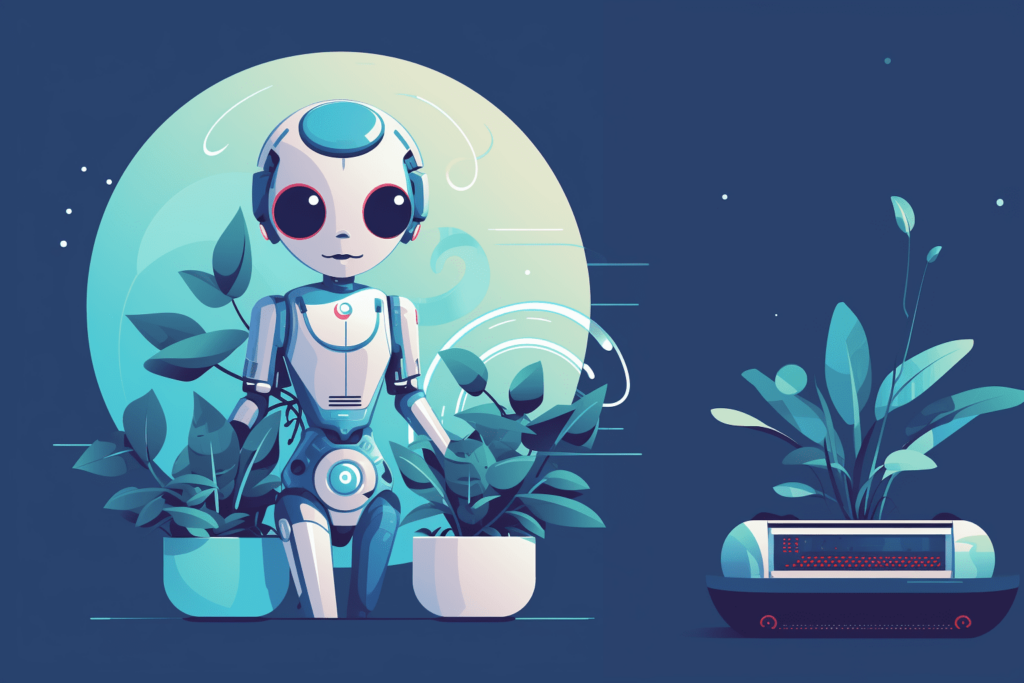
Fact 2. Ancient Roots: The Age-Old Concept of Artificial Intelligence
Although Alan Turing is rightfully credited as the father of AI, it’s crucial to acknowledge that the concept’s roots extend far beyond his groundbreaking work in the 20th century. Digging into the annals of history and interesting facts about AI, we discover a fascinating narrative that predates modern computing by centuries.
Mythological Beginnings
In Greek mythology, the god Hephaestus emerged as an early architect of artificial intelligence. Crafting automata that resembled robots, he designed these creations to serve as devoted assistants and attendants. The mythological Great Robots of Hephaestus could be considered prototypes, hinting at humanity’s age-old fascination with endowing machines with human intelligence and human-like attributes.
Medieval Alchemists
Moving deeper into history and facts about AI, medieval alchemists contributed their speculative ideas to the concept of artificial intelligence. They evoked a timeless fascination with integrating cognitive capacities with machinery by imagining the transfer of human intelligence into inanimate objects.
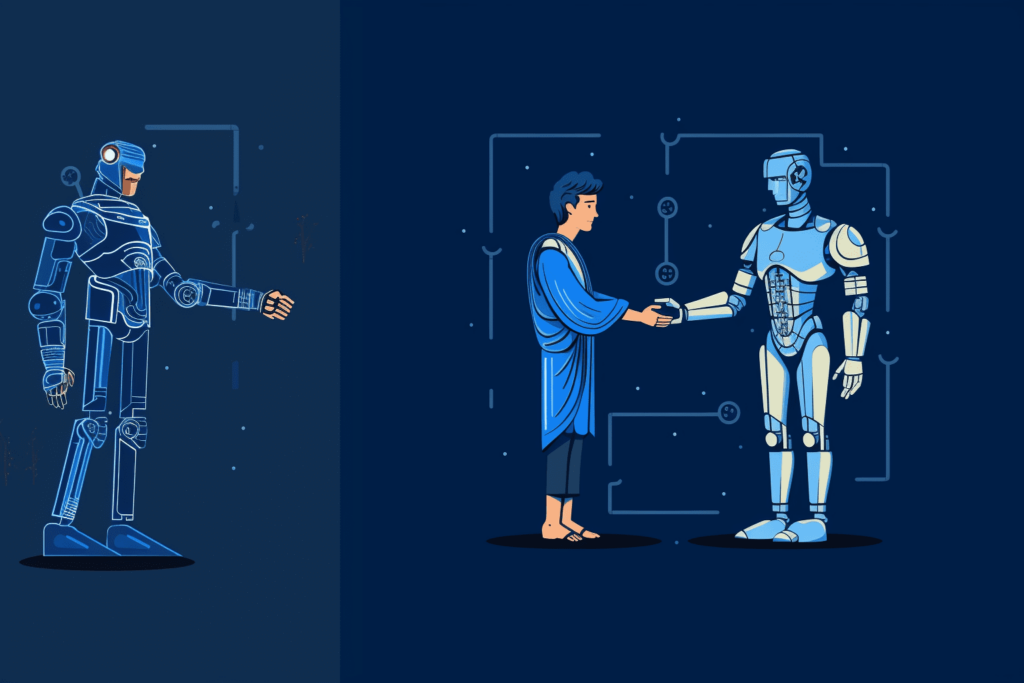
Fact 3. AI in the Arts: Boosting Creativity
As AI adoption grows, we no longer believe that only people can make art. Artificial intelligence can now be creative and make works of art that are just as good as those by well-known artists. Artificial intelligence can also write stories, make songs, and even paint pictures. A fun fact about AI is that the Edmond de Belamy portrait and Google Deep Dream were both made with AI’s help.
AI as a Multifaceted Artist
AI is like a new artist who tries out a lot of different styles. It can write interesting stories and make great-sounding songs just like people do, and AI keeps surprising us with beautiful works of art.
Collaborative Creativity: Humans and AI in Harmony
What’s remarkable is that AI doesn’t just work alone—it can team up with human artists, as shown by artificial intelligence facts. When people and AI work together, they create amazing things that challenge how we think about art. This teamwork is breaking old ideas about who is the artist and who is just helping. As we see AI and art come together, it’s clear that creativity is taking a new and exciting turn, where machines add their unique touch to the art world.
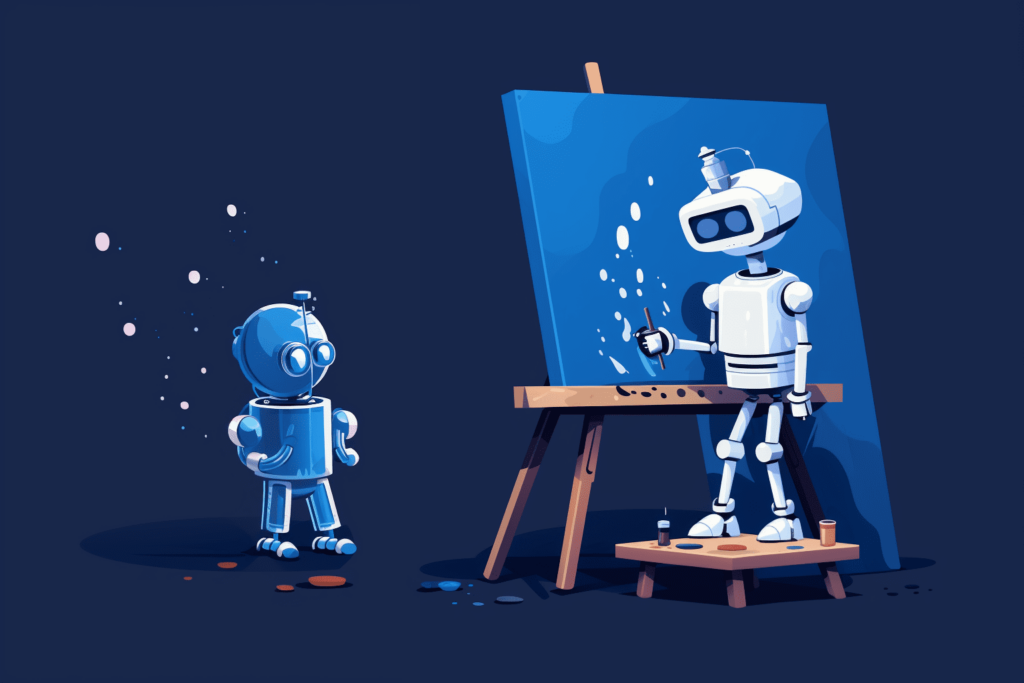
Fact 4. Self-Healing Robots: A Marvel of AI Innovation
AI-driven self-healing robots represent a groundbreaking leap in robotics, combining artificial intelligence and advanced materials to create machines that can autonomously repair and adapt to damage. Some robots are now equipped with sophisticated algorithms that enable them to identify and assess malfunctions or physical damage they may incur during operation.
Inspired by Nature: Self-Repairing Mechanisms
These AI-driven robots use self-repairing processes based on the body’s ability to heal, including aspects of deep learning and natural language processing. This lets them fix structural damage or replace malfunctioning components without any help from a person. This ability to fix itself makes the robots last longer and ensures they can keep working in harsh conditions where fixing them by hand might not be possible or practical.
Facts about AI prove that by harnessing the power of artificial intelligence, including deep learning and natural language processing, these self-healing robots exemplify the fusion of AI technology and biology and hold the promise of revolutionizing industries such as manufacturing, space exploration, and disaster response.
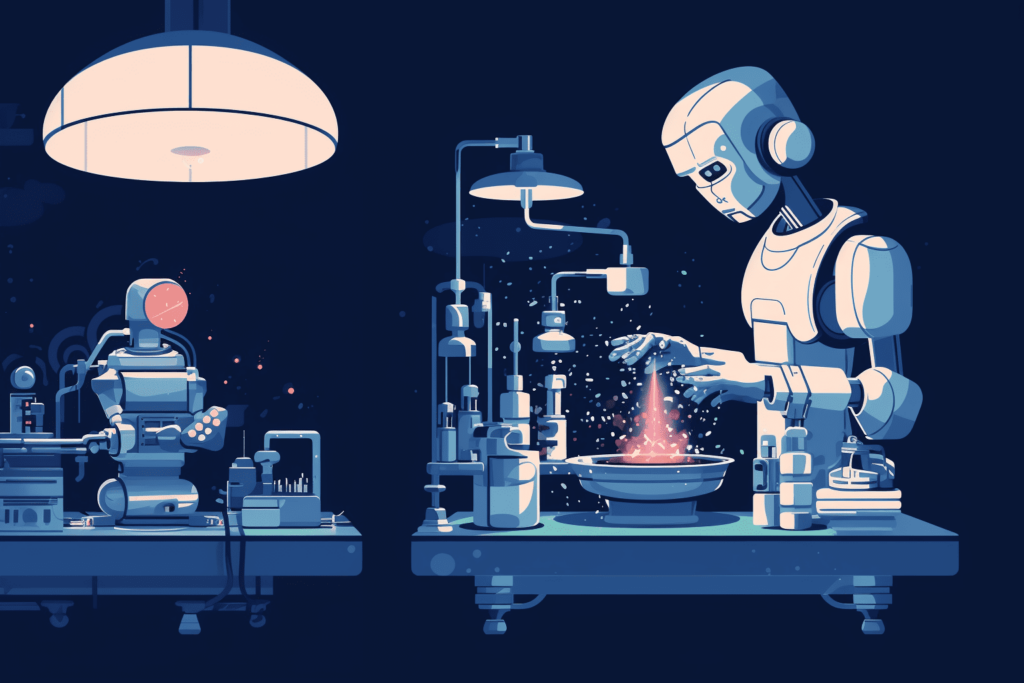
Fact 5. AI Startups: Attracting Global Investments
The allure of artificial intelligence as a transformative force has not gone unnoticed by investors, propelling AI startups into the spotlight and attracting substantial global investments. Recent years have witnessed a remarkable surge in funding for AI startups, with staggering amounts being raised within a short span. Facts about AI indicate that the AI startup ecosystem received billions in funding in the last year alone, underlining the robust financial backing AI ventures are enjoying.
Global Recognition and Diverse Industries
Interesting facts about AI highlight that the growth of AI startups is not limited to a specific region, as investors worldwide recognize the immense potential AI holds across diverse industries. From healthcare and finance to agriculture and beyond, AI startups are pioneering innovative solutions that captivate the interest of investors seeking cutting-edge opportunities. As the artificial intelligence landscape continues to evolve, these startups stand as beacons of innovation, drawing attention and investment on a global scale.

Fact 6. Attainable AI: Integrating it into Your Business
Dispelling the myth that AI integration is an expensive or unattainable endeavor, numerous companies, both large and small, have successfully embraced this transformative technology. Interesting facts about AI show that startups like DataRobot and H2O.ai have made significant strides in democratizing AI, offering accessible and user-friendly solutions catering to various industries. Recent artificial intelligence stats reveal that 35% of businesses have already integrated some form of artificial intelligence into their operations, showcasing widespread AI adoption.
Cost Decline and Cloud-Based Solutions
Furthermore, the cost of AI systems implementation has witnessed a notable decline in recent years, making it increasingly accessible for businesses of varying scales. Cloud-based AI services, provided by companies like Amazon Web Services and Microsoft Azure, offer scalable and cost-effective solutions, allowing businesses to leverage the power of artificial intelligence and machine learning without substantial upfront investments. This democratization of AI reflects a shift in the narrative, emphasizing that the benefits of artificial intelligence are within reach for businesses willing to explore and integrate this cutting-edge technology.
